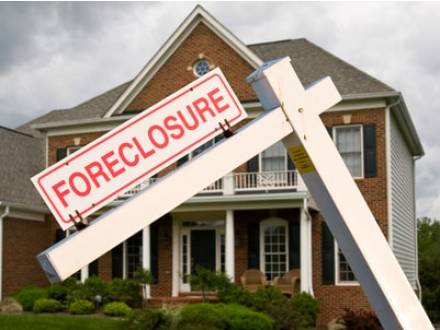1512 Artaius Parkway, Suite 300,
Libertyville, IL 60048
Call for a FREE Phone Consultation
847-549-0000
Video Consultations Also Available
 Spanish
Spanish Cantonese
CantoneseServing Clients Across 7 Illinois Locations
Why Your Lender Probably Wants to Avoid Foreclosure
 Many homeowners facing financial difficulties assume their lender is eager to foreclose on their property. However, the reality is often quite different. Lenders typically view foreclosure as a last resort, preferring to explore other options that can benefit both parties. An Illinois lawyer can help you understand this so you can negotiate more effectively and potentially find alternatives to foreclosure.
Many homeowners facing financial difficulties assume their lender is eager to foreclose on their property. However, the reality is often quite different. Lenders typically view foreclosure as a last resort, preferring to explore other options that can benefit both parties. An Illinois lawyer can help you understand this so you can negotiate more effectively and potentially find alternatives to foreclosure.
The Hidden Costs of Foreclosure for Lenders
Despite what you may have heard in the past, foreclosure is often an expensive and time-consuming process for lenders. The legal expenses alone can be substantial, including court fees, attorney fees, and other related costs. Once a lender takes possession of a foreclosed property, the lender is responsible for its upkeep, including property taxes, insurance, and repairs. This ongoing maintenance can quickly become a financial burden.
Foreclosed properties are also at higher risk of vandalism or neglect, which can further decrease their value. The foreclosure process itself can take months or even years, especially in states with judicial foreclosure procedures. This extended timeline ties up the lender's resources and delays their ability to recover their investment. Disclosed properties often sell for less than their market value, resulting in financial losses for the lender. This depreciation is compounded by the fact that foreclosures can negatively impact surrounding property values, potentially affecting the lender's other investments in the area.
Perhaps less tangible but equally important is the potential damage to a lender's reputation. Frequent foreclosures can harm a lender's public image, potentially affecting their business relationships and customer base. In an industry where trust and stability are paramount, this reputational risk is a significant concern for many lenders.
Alternatives to Foreclosure
Given these factors, lenders often have strong incentives to work with borrowers to find alternatives to foreclosure.
Loan Modification
One common option is loan modification, which involves changing the terms of the original loan to make the borrower's payments more manageable. Modifications may include extending the loan term, reducing the interest rate, or forgiving a portion of the principal.
Forbearance
Another alternative is forbearance, where the lender agrees to temporarily suspend or reduce mortgage payments for a specified period. This arrangement allows the homeowner to recover from short-term financial hardships without losing their home. It is particularly useful when the borrower's financial difficulties are expected to be temporary.
Short Sale
In cases where the home's value has decreased, the lender might agree to a short sale. By allowing the property to be sold for less than the outstanding mortgage balance, this process can save the lender from foreclosure expenses and provide the homeowner with an alternative to fulfilling his or her mortgage obligation.
Deed in Lieu of Foreclosure
Some lenders may also consider a deed in lieu of foreclosure. In this option, the homeowner voluntarily transfers the property title to the lender in exchange for release from the mortgage obligation. While the homeowner still loses the property, this process can be faster and less damaging to his or her credit than a foreclosure.
Negotiate with Your Lender
Understanding that your lender likely wants to avoid foreclosure can significantly impact your negotiation strategy. Being proactive is key, so contacting your lender as soon as you anticipate financial difficulties is vital. Early communication demonstrates responsibility and gives you more time to explore options.
When approaching these discussions, be prepared to provide detailed financial information. This includes comprehensive income, expenses, assets, and liabilities documentation. Clearly explain the reasons for your financial difficulties and, if applicable, how you plan to overcome them. This transparency can help build trust with your lender and demonstrate your commitment to finding a solution.
Familiarize yourself with the alternatives to foreclosure mentioned earlier. Being prepared to discuss which options might work best for your situation shows initiative and can lead to more productive negotiations. Lenders are often more willing to work with borrowers who demonstrate a genuine effort to address their financial challenges and maintain open lines of communication. They appreciate borrowers who come to the table with potential solutions rather than simply presenting problems.
Understand More About Your Rights With a Gurnee, IL Foreclosure Defense Lawyer
Are you concerned about foreclosure or looking to understand your rights as a homeowner? A Grayslake, IL foreclosure defense attorney can help. Call Newland & Newland, LLP at 847-549-0000 today for a free consultation to discuss your situation and explore strategies to protect your home and financial future.
 Stop Foreclosure
Stop Foreclosure




















